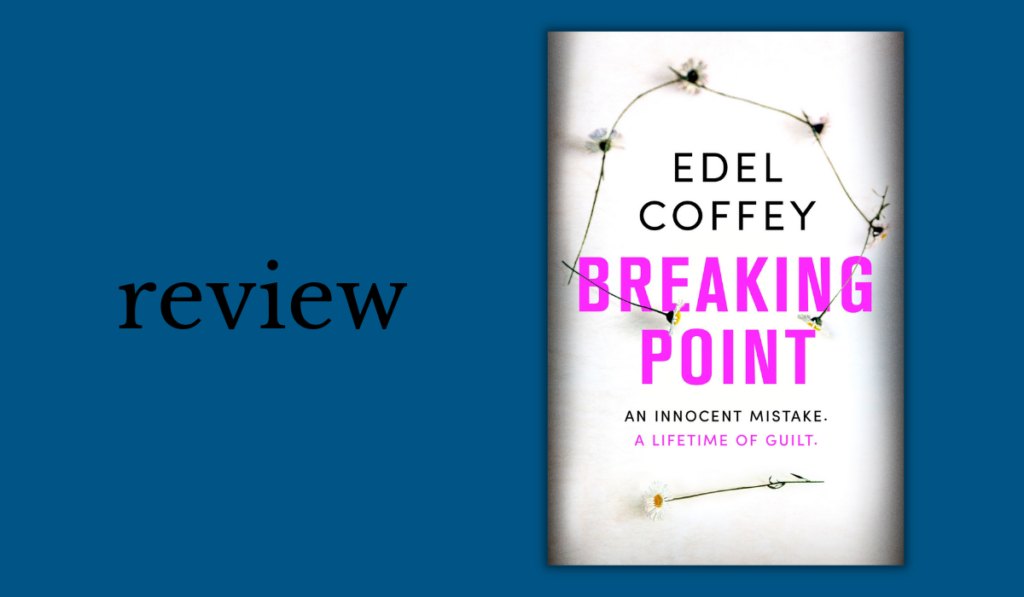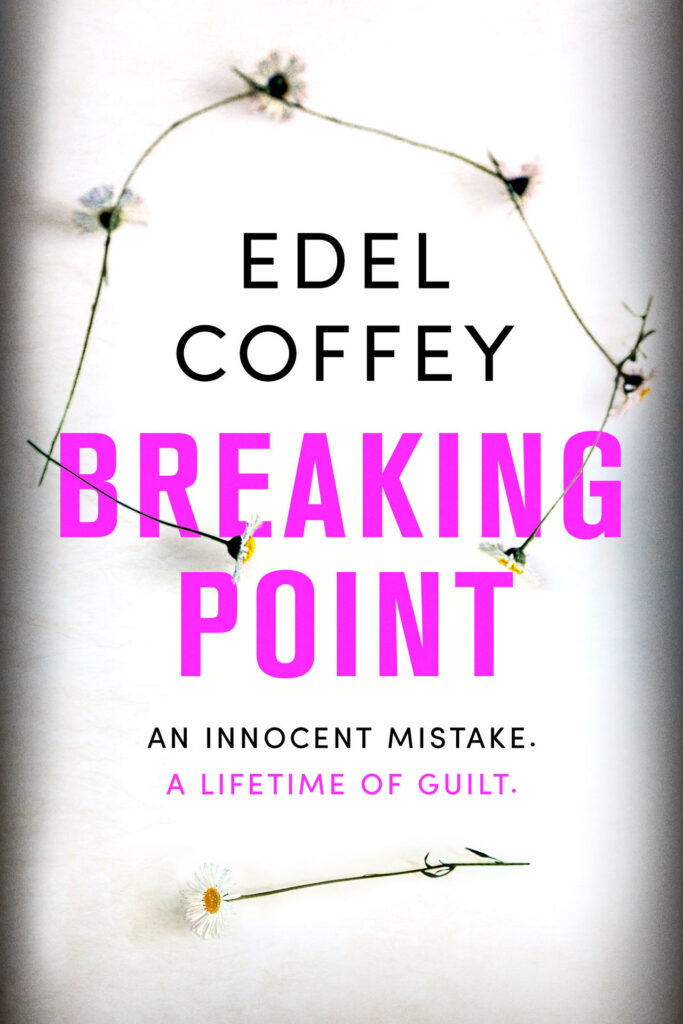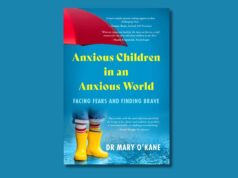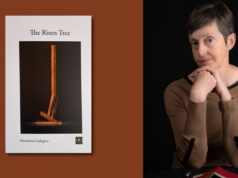
Breaking Point|Edel Coffey|Little, Brown Book Group|ISBN: 9780751582376|€13.99
“A competent debut, Breaking Point combines courtroom and family drama with a dash of social awareness.”
Thomas Mozden on Breaking Point, by Edel Coffey.
by Thomas Mozden
Breaking Point, the debut novel by Edel Coffey, charts the aftermath of a tragedy.
The novel opens on a new day in the Rise household, in New York. Their daily routine is so tightly wound that any deviation from normal is enough to send Susannah—a successful paediatrician, author and television personality—cascading.
When her husband’s car fails to start, Susannah counts the minutes, carefully composing the shifts in her schedule. An emergency at the hospital further steals her attention and, on what becomes the hottest day of the year, she leaves her baby daughter in the back seat of her car, thinking she has been dropped off at day-care.

Tragedy
The death of her child is the breaking point of the novel, the boiling over of prodigious stress. This is not only a tragic moment, but the culmination of extreme societal expectations.
Susannah Rice has a successful career; she is also a wife and a mother of two: the separation between these aspects of her life provides the thematic thrust of the narrative.
Adelaide Gold, a television reporter, covers the aftermath of the death and the negligence trial. Adelaide has a tragedy of her own, one to which Susannah is intimately, if anonymously, tied.
Coffey interlaces chapters from the perspective of each character, but the driving force of the book is Susannah’s youngest daughter.
American setting
Susannah is an expert in a field that expects women to rigidly compartmentalise their private and public lives. To slack as a doctor, it is understood, is professional suicide.
The American setting of the book is a key aspect to how we understand the obscene pressures of contemporary life.
In the United States, something only exists if it can be bought and sold for a profit.
Health insurance and childcare are no different. These unique personal and financial challenges illustrate the concerns, and one of the shortcomings, of the novel.
Personal wealth
The Rice family is no stranger to the pressures and expectations of contemporary life. There is, however, a glaring and persistent focus on Susannah’s personal wealth.
We’re told that she doesn’t own a pair of shoes that cost less than $400 and is able to spontaneously burn a $3,000 Dior dress.
There’s a distracting repetition of such large sums throughout. Adelaide, as one of the outsiders looking in, recognises that Susannah is always immaculately composed.
This does nothing to lessen the tragedy, of course, but the prohibitive nature of health insurance in the United States fits better when examined through Adelaide’s middle class experience. The upper-class nature of the world of the novel is conspicuous.
Pacy and lucid
Coffey writes the action of the narrative in a pacy, lucid style. There are a few rough spots, particularly where descriptions are involved; likewise, there are moments when sentences are stretched too far, but the prose settles into itself after the first third of the book.
The strength of the writing lies in how Coffey finds illustrative examples to demonstrate the thematic concerns of her novel.
As Adelaide and her cameraman Luke set up a shot in front of the hospital where Susannah works, a male colleague sets up just behind her. When she confronts him, he does nothing to move out of her shot. It is only when Luke intervenes that he moves on.
Upper-class milieu
If the sharpness of these criticisms falls short, it’s the result of the novel’s upper-class milieu.
When the book settles into the courtroom, we’re introduced to a prosecutor described as fleshy (his finger bulges around his wedding ring) and shabbily dressed (his trouser legs being rolled twice). That this is in contradistinction to the immaculately composed, designer-clothed Susannah is glaring, even if unintentional.
The trial sequences lay out Coffey’s points thoroughly, even didactically. When the outside comes crashing in, however, the judex ex machina keeps it at bay.
The culmination of these various threads manages to both surprise and comfort, the insular world of Susannah again set upright. The social stratum of the setting is well beyond the experience of most, which ultimately allows an alienating quality to slide in.
A competent debut, Breaking Point combines courtroom and family drama with a dash of social awareness.

Thomas Mozden is a bookseller and writer based in Maynooth. His film criticism has appeared in HeadStuff: https://headstuff.org/author/thomas-mozden/












